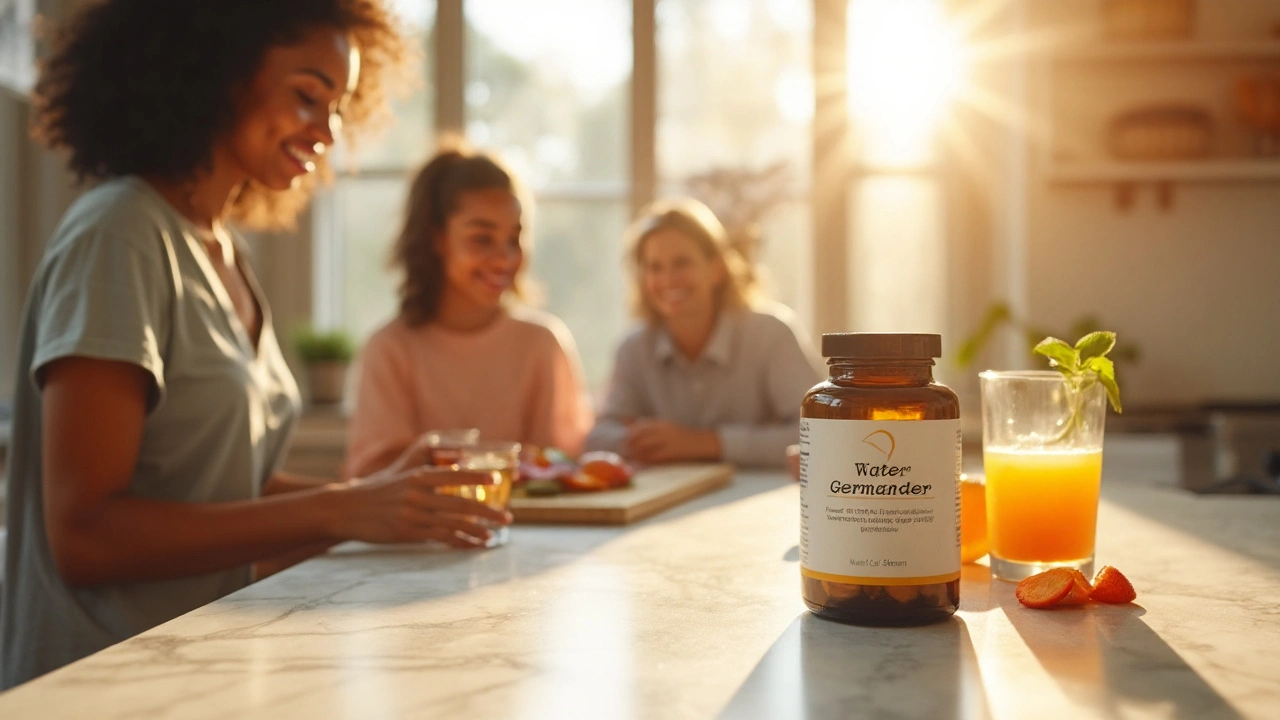Water Germander: What It Is and Why It Matters
Water germander is a low‑grower plant that likes wet soil or the edge of ponds. It’s known for its tiny green leaves and tiny white flowers. People have been using it in folk medicine for centuries, especially in regions where it grows wild. If you’re curious about natural ways to support digestion or calm inflammation, this herb often shows up in the conversation.
Most of the interest in water germander comes from its traditional use as a mild anti‑inflammatory and digestive aid. The plant contains flavonoids and saponins that can help soothe the gut lining and reduce swelling. Some herbalists also recommend it for skin irritations because it seems to calm redness and itching. While scientific research is still catching up, the long history of use gives a solid hint that it’s worth a try—if you use it right.
Traditional Uses and Health Benefits
In many Asian countries, water germander is brewed into a tea after the leaves are dried. The tea is taken to ease bloating, mild nausea, or occasional stomach cramps. A handful of dried leaves can be added to a warm bath for a soothing soak that helps with joint stiffness. Some people also make a poultice from fresh leaves and apply it to minor cuts or rashes, reporting less irritation.
Beyond the gut, the plant’s antioxidants may protect cells from oxidative stress. A few small lab studies suggest it could help lower blood sugar spikes after meals, which is why some diabetic‑friendly guides list it as a supportive herb. Keep in mind that these benefits are modest; water germander isn’t a miracle cure, but it can be a helpful piece of a broader health plan.
How to Use Water Germander Safely
If you want to try water germander, start with a low dose. A typical tea uses about 1‑2 teaspoons of dried leaf per cup of hot water, steeped for 5‑10 minutes. Drink one cup a day and see how your body reacts. For a topical poultice, crush a few fresh leaves, add a little water to make a paste, and apply it to the skin for up to 20 minutes.
Always buy from a reputable source. Look for vendors who test their herbs for contaminants and list the botanical name clearly. Avoid wild‑harvested material unless you’re sure of the plant’s identity—mistaking it for a similar species could cause unwanted side effects. Pregnant or nursing people should skip water germander until they talk to a healthcare professional, as safety data is limited.
Because the herb can interact with blood‑thinning medications, anyone on warfarin, aspirin, or similar drugs should check with a doctor before adding it to their routine. The same goes for people taking strong anti‑diabetic meds; the herb might enhance the blood‑sugar‑lowering effect.
In short, water germander is a gentle, versatile herb that can support digestion, skin comfort, and mild inflammation when used responsibly. Start small, source it wisely, and keep an eye on how you feel. If you notice any unusual reactions, stop using it and talk to a professional. Happy herb hunting!
